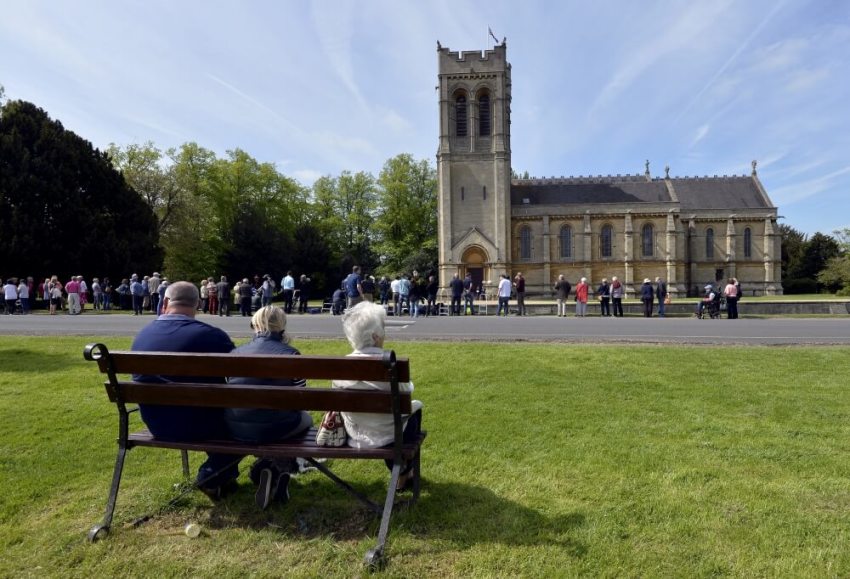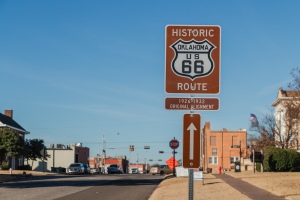Only 38% of Brits identify as Christian; lowest proportion in poll's history

The proportion of Brits who identify as Christian has hit its lowest point in over three decades of polling, as more than half of respondents said they no longer affiliate with a religion, a new study suggests.
The National Centre for Social Research, which claims to be Britain’s largest independent social research agency, released its 36th annual British Social Attitudes report this week based on a survey of 3,879 people.
The report confirmed the continued trend seen in the U.K. and the United States of people not affiliating with any religion as 52% of respondents to the survey said they do not belong to any religion.
“Of these, most were simply not brought up with a religion, with a smaller minority having lost a childhood faith,” the report states. “Those who do not regard themselves as belonging to a religion are increasingly secular, that is, likely to say they are ‘very’ or ‘extremely’ unreligious.”
The study finds that only 38% of the respondents identify as Christian, a far cry from the 66% of respondents in the organization’s 1998 survey who identified as Christian and a 2-percentage-point drop from 2017.
In 2008, 50% of respondents identified as Christian.
The proportion of respondents who identified as belonging to the Church of England or its sister churches, the report states, fell 40% in 1983 to 12% in 2018.
As for people ages 18 through 24, just 1% identify as Anglican compared to the 33% of people older than 75.
At the same time, the proportion of the population that declares themselves to be Muslims (5%) and nondenominational Christians has risen. The percentage of respondents who said they were nondenominational Christians increased from 3% of the population in 1998 to 13% in 2018.
The finding shows that the proportion of nondenominational Christians in the United Kingdom is now “equivalent to” the proportion that identifies with the Church of England, the report explained.
“The exact nature of this group is unclear: some of those people will be active members of independent nondenominational churches — indeed a third (34%) of them attend services at least monthly,” the report states. “Some may feel alienated from institutionalised religion. Others may be making a claim not so much about religious faith as ethnic identity.”
The report also found that the proportion of Brits who consider themselves to be Roman Catholic, Presbyterian, Methodist or Baptist totals 10%, down from 20% in 1998.
The report was written by University College London social science professor David Voas and University of Aberdeen professor Steve Bruce. They pinpoint the decline in church membership in the U.K. to have begun somewhere around 1851.
“In 1900 church membership was around 25 percent; it is now less than 10 percent,” the report reads. “In 1900 more than half the age-relevant population attended Sunday schools; now it is less than 4 percent.”
In 1998, the British Social Attitudes found that 11% of people with no religion were brought up in some sort of religious tradition. But in 2018, the report states, that figure rose to 23%.
The new study also found that 66% of respondents “never attend religious services, apart from special occasions such as weddings, funerals and baptisms.”
While there has been a noticeable decrease in the number of people who say they attend religious services on a monthly basis, the report notes that the proportion of people who report attending services weekly has remained stable at 11%.
The study also found that about two-thirds of respondents believe that religion brings more conflict than peace. Twenty-one percent of respondents said they have “no confidence at all” in churches and religious organizations and less than half (46%) said that have “some or more” confidence in such organizations.
“Wider research suggests that Britain is becoming more secular not because adults are losing their religion or inclination to practice but because old people with an attachment to the Church of England and other Christian denominations are gradually being replaced in the population by unaffiliated younger people,” the report reasons.
“To put it another way, religious decline in Britain is generational; people tend to be less religious than their parents, and on average their children are even less religious than they are.”
While fewer people in the U.K. are identifying with a religion, 26 percent say they don’t believe in God. By comparison, just 10% said the same in 1998. The proportion of people who say they “believe in God now and always have” has dropped from 48% in 1998 to 35% in 2018.
While the study shows the continued trend away from religion in the U.K., it also found that the proportion of respondents who consider same-sex relationships to be “not wrong at all” dropped from 68% in 2017 to 66% in 2018.
Even though 2-percentage-points might not seem like much, it represents the first time there has been a decline in that figure since the question was first asked by the polling organization in 1987, according to Reuters.
“Over the last three years attitudes seem to have been stabilizing,” research director Nilufer Rahim told Reuters. “What we might be seeing is that attitudes are plateauing now — we might be reaching a point at which attitudes might not liberalize in the same way as they have done since the early 1980s.”
The report noted that the “process of liberalisation” was “slowing down.”
“While we have a new and radically transformed set of social norms in the field of sexual relations and gender, we also have a significant minority who feel differently about these issues,” the report reads, according to The Independent. “And that minority may become increasingly focused on ensuring that socially conservative views and voices are reflected in public discussion of gender and relationships.”
Follow Samuel Smith on Twitter: @IamSamSmith
or Facebook: SamuelSmithCP



























